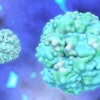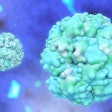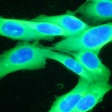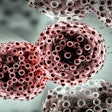
In support of the Biden-Harris administration’s Cancer Moonshot initiative, the U.S. National Institutes of Health (NIH) has launched the Cancer Screening Research Network, a clinical trial network dedicated to evaluating emerging cancer screening technologies.
The mission of the network is to evaluate promising new screening technologies for their benefits, risks, and efficacy through studies and to determine how best to incorporate these technologies into the standard of care.
“There are many cancers we still cannot reliably detect until it is so late that they become extremely difficult to treat,” Dr. W. Kimryn Rathmell, PhD, director of the National Cancer Institute (NCI) said in a statement. “Emerging technologies such as multicancer detection tests could transform cancer screening and help to extend the lives of many more people. We need to be sure that these technologies work and understand how to use them so they benefit everyone.”
Eight centers have received funding from the NCI, part of NIH, for network activities. The funding will be used for study coordination, communication activities, statistics and data management, and accrual and enrollment of participants into clinical trials and studies.
The Fred Hutchinson Cancer Center in Seattle has been designated as the network’s coordinating and communications center, as well as its statistics and data management center. The other centers chosen include:
- The Henry Ford Health + Michigan State University Health Sciences in Detroit
- Kaiser Permanente Northern California, Kaiser Permanente Southern California, and the Kaiser Permanente School of Medicine in Pasadena, CA
- OU Health Stephenson Cancer Center at the University of Oklahoma Health Sciences in Oklahoma City
- The University of Colorado Cancer Center in Aurora, CO
- The University of North Carolina Lineberger Comprehensive Cancer Center in Chapel Hill, NC
- Virginia Commonwealth University, Inova, and Sentara Health in Richmond, VA
- The Washington University School of Medicine in St. Louis
The study sites chosen are geographically diverse; all include underserved populations. The network aims to reach diverse populations that receive care in a variety of healthcare settings. The study investigators will come from a variety of disciplines.
Additionally, the U.S. Department of Defense Uniformed Services University and the U.S. Department of Veterans Affairs will participate as sites; they will be funded by their respective agencies.
The network will launch its pilot study to assess the use of multicancer detection (MCD) tests in future randomized controlled trials in 2024. The Vanguard Study on MultiCancer Detection will enroll up to 24,000 people and will inform the design of a larger trial. This subsequent trial will evaluate whether the benefits of using MCD tests to screen for cancer outweigh the risks, as well as the tests’ effectiveness at preventing mortality through early detection.



















